
Mbarara: The Heartbeat of Western Uganda
Nestled in the lush landscapes of Western Uganda, Mbarara is a vibrant city that offers a unique blend of culture, history, and natural beauty. Known as the 'Land of Milk and Honey,' Mbarara is famous for its cattle farms and dairy products, giving visitors a taste of local life and traditions. The city is a gateway to several national parks, making it an ideal base for nature enthusiasts and adventure seekers alike. Mbarara is steeped in cultural heritage, with landmarks such as the Igongo Cultural Centre where you can immerse yourself in the history and traditions of the Ankole people. The Centre also features a museum, restaurant, and gardens, providing a comprehensive cultural experience. The city’s bustling markets and vibrant streets offer a chance to sample local cuisine, shop for crafts, and interact with friendly locals. For those looking to explore the natural wonders, Mbarara is conveniently located near Lake Mburo National Park. This park is home to diverse wildlife including zebras, hippos, and a variety of bird species. Whether it’s a boat ride on Lake Mburo, a game drive, or a nature walk, the park offers numerous activities to enjoy. The scenic beauty of the rolling hills and vast savannas around Mbarara provides a perfect backdrop for relaxation and exploration.
Local tips in Mbarara
- Visit the Igongo Cultural Centre for a deep dive into local history and traditions.
- Try local dishes like 'Eshabwe' and 'Akaro' at the city’s traditional restaurants.
- Take a day trip to Lake Mburo National Park for wildlife viewing and scenic landscapes.
- Explore the Mbarara University of Science and Technology campus for a glimpse into local academic life.
- Plan your visit during the dry season (June to August and December to February) for the best weather conditions.
Mbarara: The Heartbeat of Western Uganda
Nestled in the lush landscapes of Western Uganda, Mbarara is a vibrant city that offers a unique blend of culture, history, and natural beauty. Known as the 'Land of Milk and Honey,' Mbarara is famous for its cattle farms and dairy products, giving visitors a taste of local life and traditions. The city is a gateway to several national parks, making it an ideal base for nature enthusiasts and adventure seekers alike. Mbarara is steeped in cultural heritage, with landmarks such as the Igongo Cultural Centre where you can immerse yourself in the history and traditions of the Ankole people. The Centre also features a museum, restaurant, and gardens, providing a comprehensive cultural experience. The city’s bustling markets and vibrant streets offer a chance to sample local cuisine, shop for crafts, and interact with friendly locals. For those looking to explore the natural wonders, Mbarara is conveniently located near Lake Mburo National Park. This park is home to diverse wildlife including zebras, hippos, and a variety of bird species. Whether it’s a boat ride on Lake Mburo, a game drive, or a nature walk, the park offers numerous activities to enjoy. The scenic beauty of the rolling hills and vast savannas around Mbarara provides a perfect backdrop for relaxation and exploration.
When is the best time to go to Mbarara?
Iconic landmarks you can’t miss
Igongo Country Hotel and Cultural Centre
Explore Ugandan culture at Igongo Country Hotel and Cultural Centre, a unique blend of hospitality and heritage along the Mbarara-Masaka Road.

Hotel Triangle Mbarara
Discover comfort and convenience at Hotel Triangle Mbarara, your gateway to exploring the vibrant culture and natural beauty of Uganda.

Agip Motel
Experience the vibrant essence of Mbarara at Agip Motel, a perfect blend of comfort, cuisine, and entertainment in Uganda.
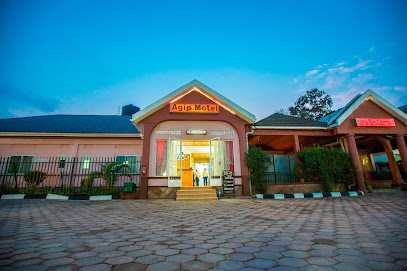
Acacia Hotel Mbarara
Experience comfort and convenience at Acacia Hotel Mbarara, your premier destination in the heart of Uganda's vibrant city.
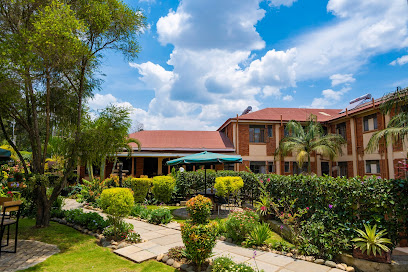
Easy View Hotel
Discover the comfort and convenience of Easy View Hotel, your ideal base for exploring Mbarara's vibrant culture and natural beauty.

Kosiya Hotel & Services Apartment
Experience the perfect blend of comfort and local culture at Kosiya Hotel & Services Apartment in Mbarara, Uganda.

Café Havana
Discover the vibrant flavors of Mbarara at Café Havana, where local cuisine meets a cozy café atmosphere, perfect for unwinding and indulging.
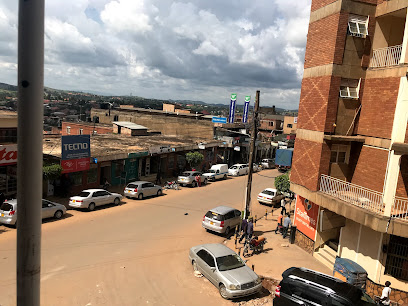
Pinnacle Hotel Mbarara
Discover unparalleled comfort and hospitality at Pinnacle Hotel Mbarara, your gateway to the wonders of Uganda's Western region.
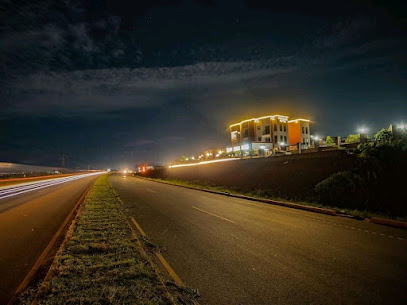
Wagga Resort Mbarara
Experience tranquility and comfort at Wagga Resort in Mbarara, a perfect escape for nature lovers and relaxation seekers.

Rwizi Arch Hotel | Mbarara
Discover comfort and culture at Rwizi Arch Hotel in Mbarara, Uganda. Perfect for relaxation and exploring local attractions.
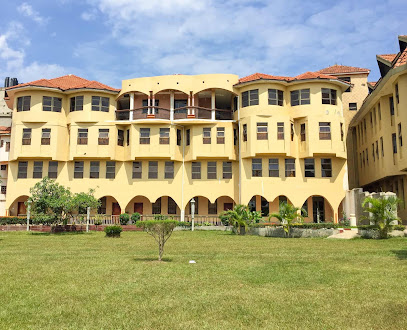
Asamar Country Resort Ruti
Discover a serene escape at Asamar Country Resort Ruti, where nature meets comfort in the heart of Mbarara, Uganda.
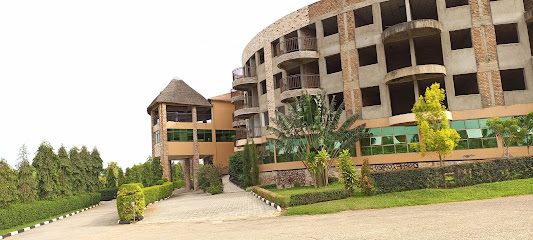
Rolex Booth
Discover the authentic taste of Uganda at Rolex Booth, where every bite of our signature Rolex rolls tells a story of flavor and tradition.
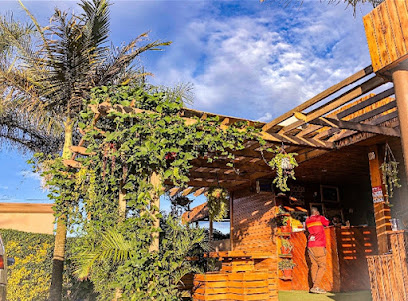
Oxford Hotel
Discover the charm of Mbarara from the comfort of Oxford Hotel, where warm hospitality meets modern convenience.

Las Vegas Hotel Mbarara
Discover the charm of Mbarara at Las Vegas Hotel, a cozy bed and breakfast offering exceptional hospitality and local culture.

Cafe Havana3
Discover the vibrant flavors of Mbarara at Cafe Havana, where local cuisine meets a welcoming atmosphere in a charming café setting.
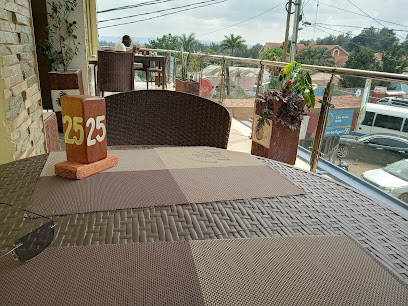
Unmissable attractions to see
Igongo Country Hotel and Cultural Centre
Discover the heart of Ugandan culture at Igongo Country Hotel and Cultural Centre, where heritage meets hospitality in Mbarara.

Lake Mburo National Park
Experience the captivating beauty and diverse wildlife at Lake Mburo National Park, Uganda's serene natural retreat.
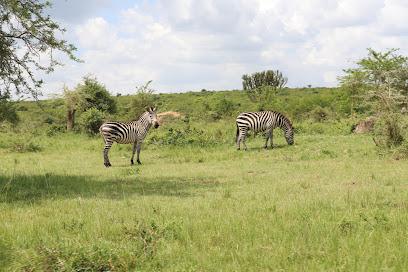
Nkore Place
Discover the tranquil beauty of Nkore Place, a lush garden oasis in Mbarara, Uganda, perfect for relaxation and nature exploration.
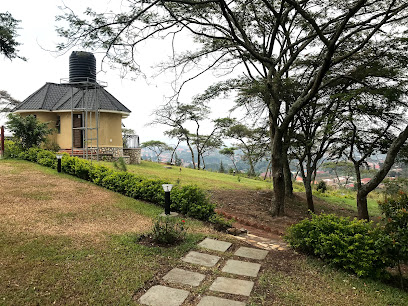
Independence Park
Discover tranquility at Independence Park in Mbarara, a beautiful green space perfect for relaxation and enjoying nature's beauty.
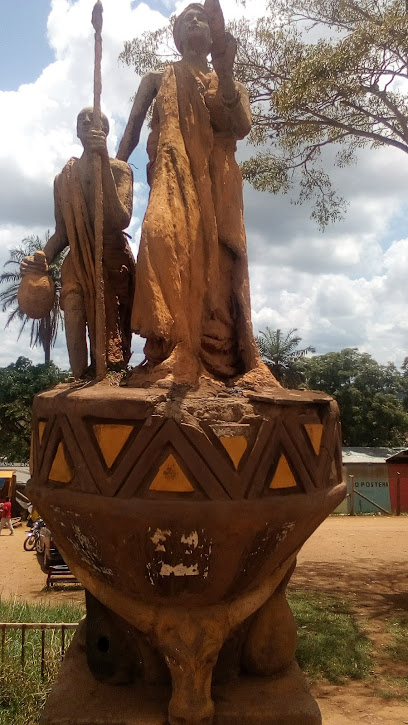
Ntare Gardenz
Explore the tranquil beauty of Ntare Gardenz, a peaceful garden perfect for relaxation, picnics, and enjoying the natural wonders of Mbarara.
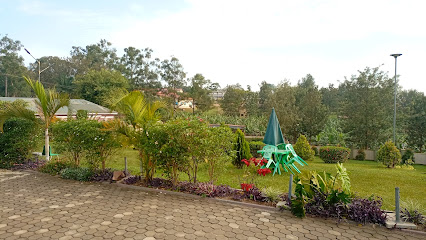
Mbarara River Rwizi Falls
Explore the breathtaking beauty of Mbarara River Rwizi Falls, a stunning natural attraction in Uganda, perfect for adventure and relaxation.
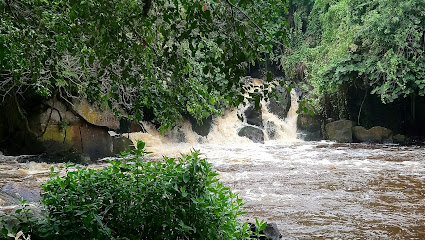
Nkokonjeru Tombs
Explore the Nkokonjeru Tombs in Mbarara, a cultural treasure that reveals the rich history and traditions of Uganda amidst stunning landscapes.
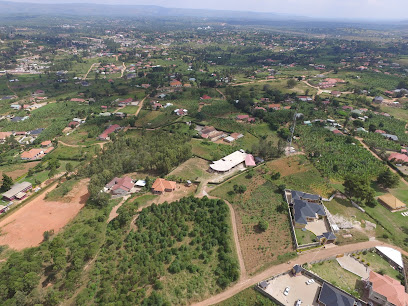
Arena Gardens
Discover the beauty of nature at Arena Gardens, a serene park in Mbarara, Uganda, perfect for relaxation, sports, and family outings.
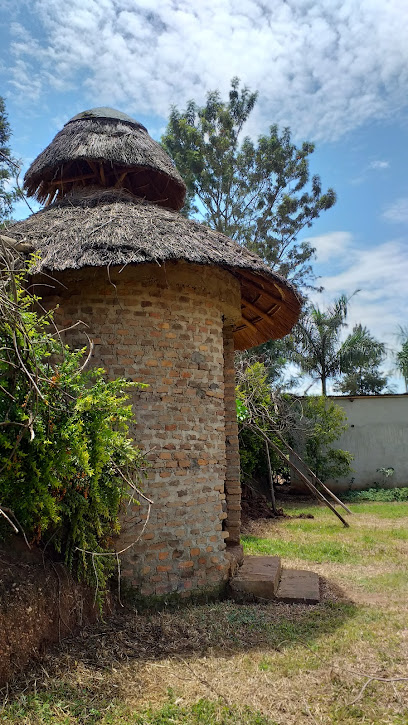
Family Resort Rwobuyenje
Experience the beauty of nature and family bonding at Family Resort Rwobuyenje, a top tourist attraction in Mbarara, Uganda, perfect for adventure and relaxation.
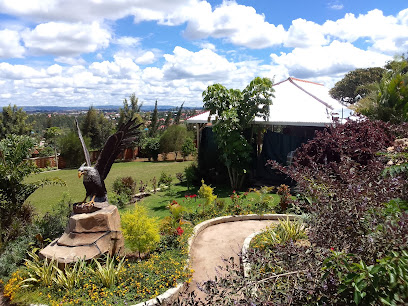
Rwenjeru Agro-tourism, Demo & Training Farm
Explore Rwenjeru Agro-tourism Farm: Experience Uganda's agricultural wonders, local cuisine, and stunning landscapes in Mbarara.
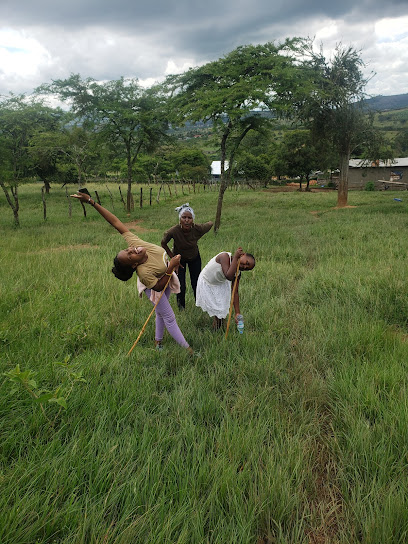
Roosty's Gardens & Restaurant
Explore the lush beauty and delightful cuisine of Roosty's Gardens & Restaurant in Mbarara, a perfect retreat for nature lovers and families.
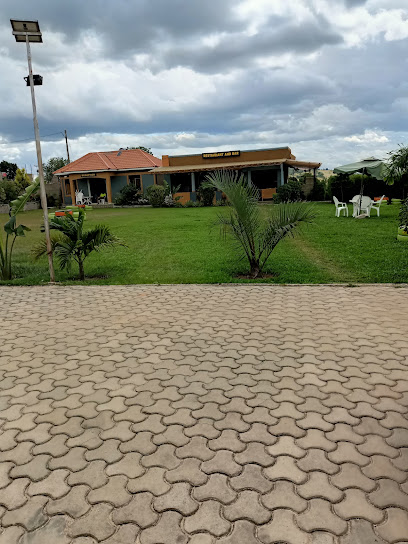
Obururuma waterfalls
Experience the breathtaking beauty of Obururuma Waterfalls in Mbarara, Uganda - a must-visit natural attraction for all travelers.
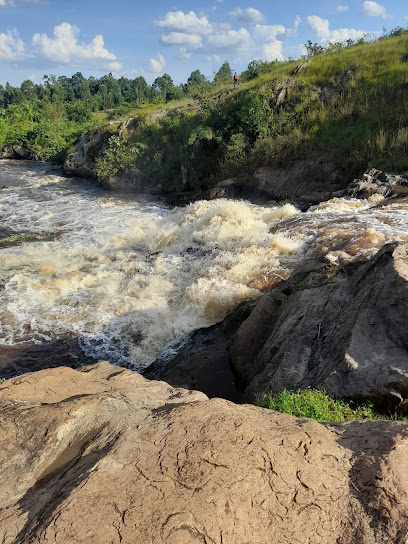
Omugabe Palace
Explore the historical significance and cultural heritage of Omugabe Palace, a must-visit in Mbarara's Ankole Kingdom.
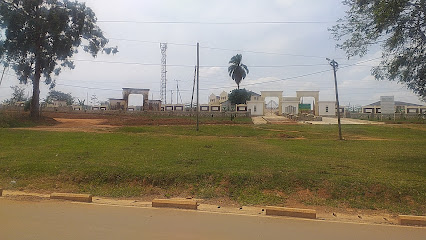
Là farm
Discover the beauty of nature and the richness of local culture at Là Farm, a serene tourist attraction in Mbarara, Uganda.
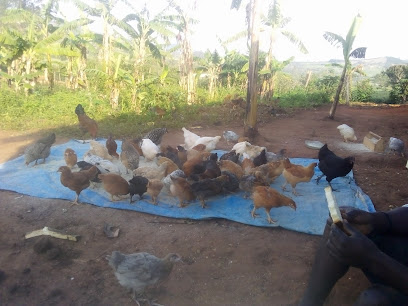
Ashiki and Imani Gardens
Experience tranquility and natural beauty at Ashiki and Imani Gardens, a serene park in Mbarara, Uganda, perfect for relaxation and family outings.
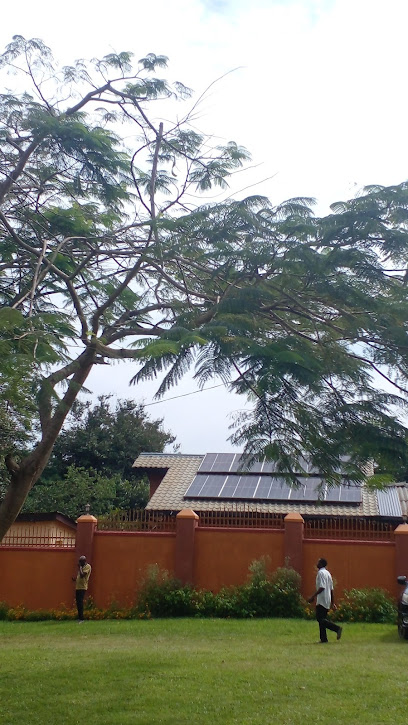
Essential places to dine
Café Havana
Discover the vibrant flavors of Uganda at Café Havana - where delicious food meets warm hospitality in Mbarara.
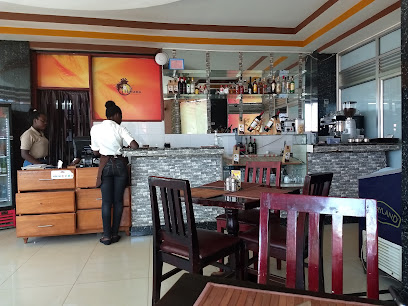
Ishanyu Food Centre
Experience authentic Ugandan cuisine at Ishanyu Food Centre in Mbarara – where local flavors meet a warm atmosphere.
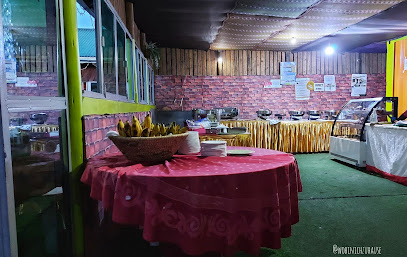
Coffee Bar:
Discover Mbarara's hidden gem at Coffee Bar - where exceptional coffee meets cozy comfort.
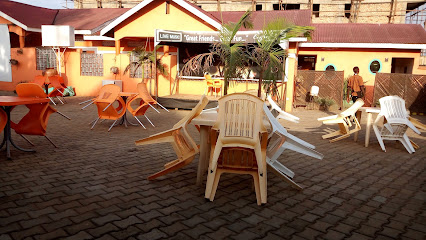
Cafe Havana3
Discover the vibrant flavors of Mbarara at Cafe Havana – where local cuisine meets warm hospitality.
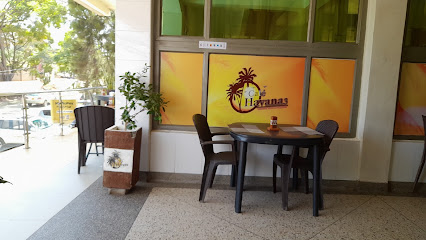
Kekez Crispy Dine
Experience the flavors of Uganda at Kekez Crispy Dine in Mbarara – where delicious meets affordable dining.
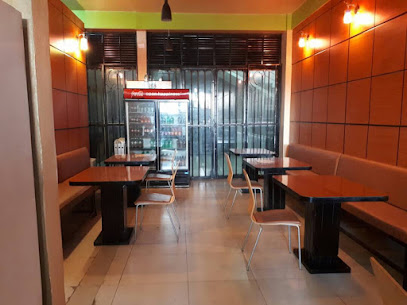
Agip Motel's Restaunt and Bar
Experience authentic Ugandan cuisine at Agip Motel's Restaurant and Bar in Mbarara—where flavors meet comfort.
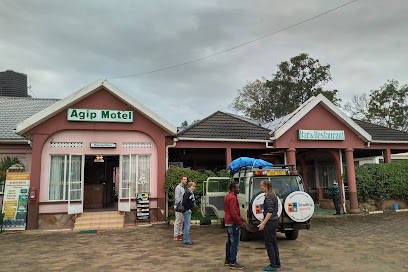
Trudys Diner
Experience the authentic flavors of Uganda at Trudy's Diner in Mbarara—where delicious cuisine meets warm hospitality.
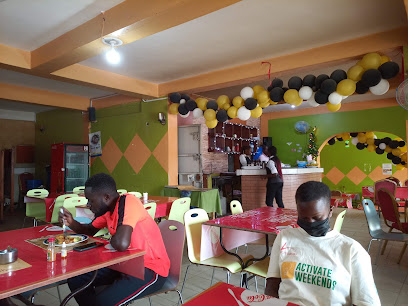
Kanuzire Pork Joint
Indulge in mouthwatering grilled pork at Kanuzire Pork Joint – where fast food meets Ugandan tradition in Mbarara's lively atmosphere.
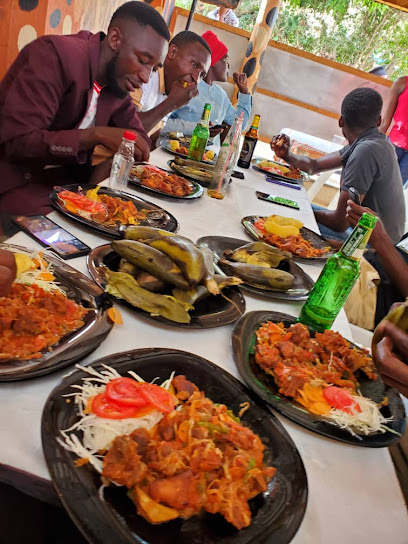
Jack's Lounge
Discover Jack's Lounge in Mbarara – where local flavors meet international cuisine in a cozy setting perfect for all occasions.
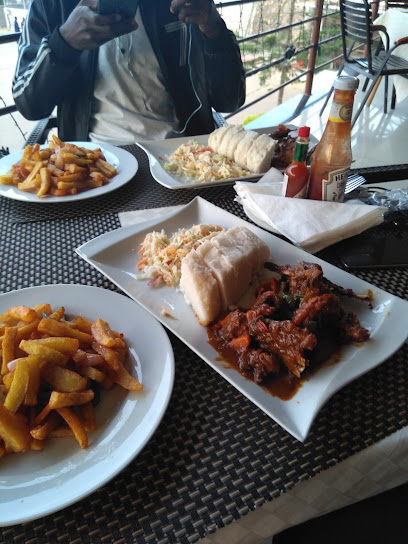
Luxor Bar And Grill
Experience authentic Ugandan flavors at Luxor Bar And Grill in Mbarara – where great food meets vibrant culture.
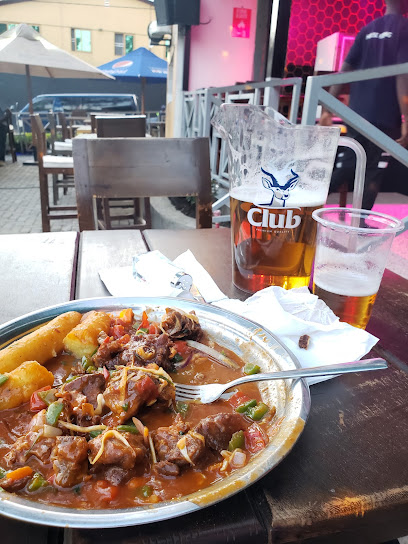
Curry 'n Hurry Restaurant
Discover authentic Ugandan cuisine at Curry 'n Hurry Restaurant in Mbarara - a delightful dining experience awaits you.
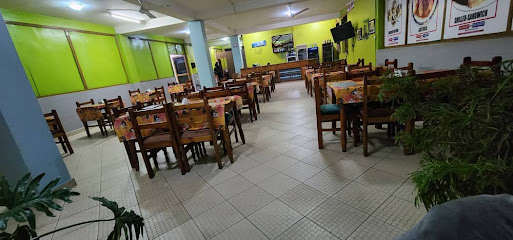
Italiano Ristorante
Savor authentic Italian dishes in Mbarara's charming eatery offering a delightful culinary journey through Italy.
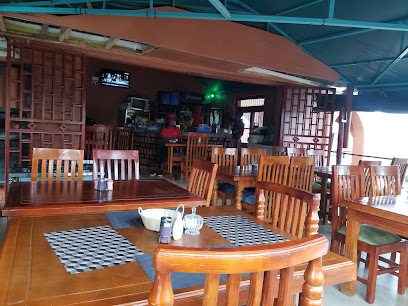
Hungry Goose Restaurant and Pizzeria
Discover delightful flavors at Hungry Goose Restaurant & Pizzeria in Mbarara - where local cuisine meets global tastes.
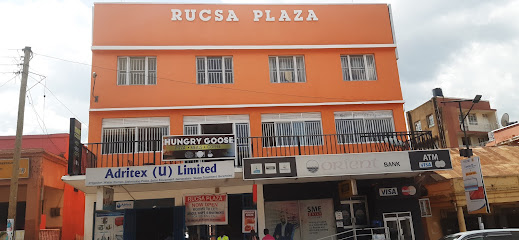
Big Chef Restaurant
Discover Big Chef Restaurant in Mbarara: A delightful culinary experience with local and international flavors awaits you.
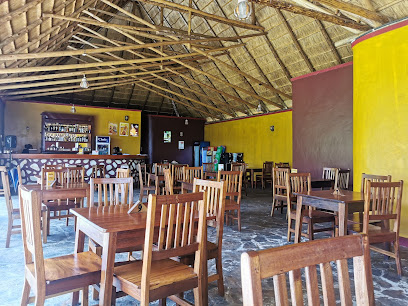
Diner's Resturant
Discover delicious Ugandan cuisine at Diner's Restaurant in Mbarara – where every meal is a celebration of local flavors.
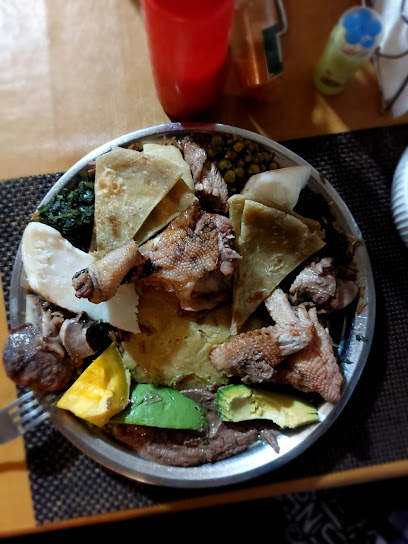
Markets, malls and hidden boutiques
Mbarara City Mall
Explore Mbarara City Mall, the premier shopping destination in Mbarara, Uganda, offering diverse retail and dining experiences for every traveler.
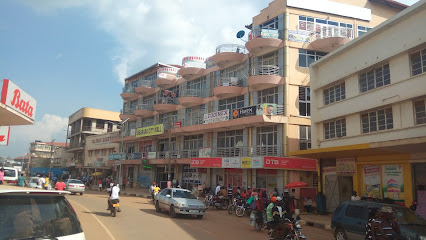
FRESCO SUPER MARKET/AGAPE SANCTUARY MINISTRIES 4th floor
Explore the vibrant Fresco Super Market in Mbarara, Uganda, your go-to destination for local and international products in a welcoming atmosphere.
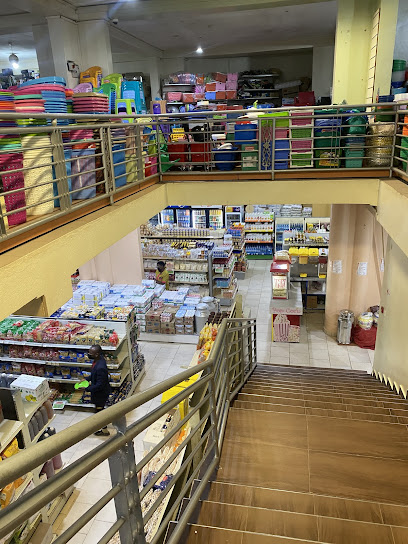
Golf Course Supermarket
Discover the convenience of Golf Course Supermarket in Mbarara, offering a rich selection of groceries from local favorites to international brands.
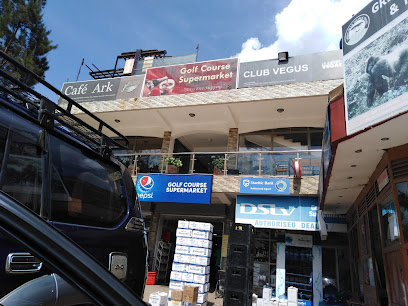
Kirimi Supermarket
Explore the vibrant local flavors and fresh produce at Kirimi Supermarket, a must-visit spot in Mbarara for tourists seeking authentic Ugandan experiences.
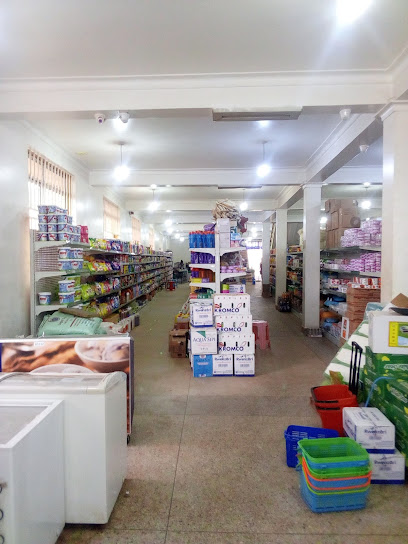
DAYTODAY
Explore DAYTODAY Shopping Mall in Mbarara: A vibrant hub for shopping, dining, and entertainment, perfect for tourists seeking local experiences.
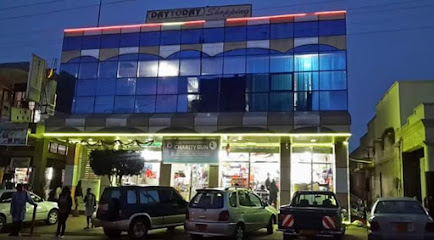
Western arcade
Discover a vibrant shopping experience at Western Arcade, Mbarara's premier mall featuring a variety of shops and dining options.
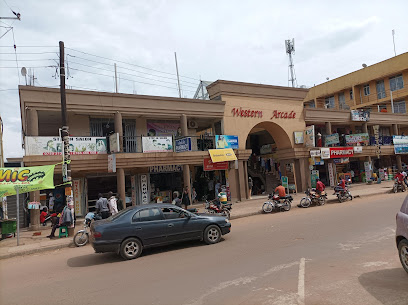
Adit Mall
Discover Adit Mall in Mbarara for an unforgettable shopping and dining experience, featuring local and international brands in a modern setting.
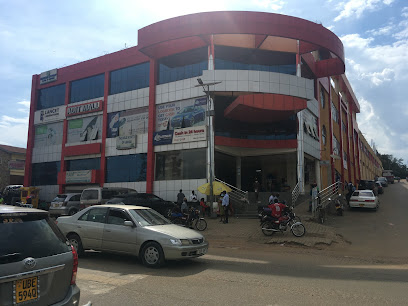
Portville Mall
Explore the vibrant Portville Mall in Mbarara, a shopping haven featuring local boutiques, electronics, and diverse dining options.
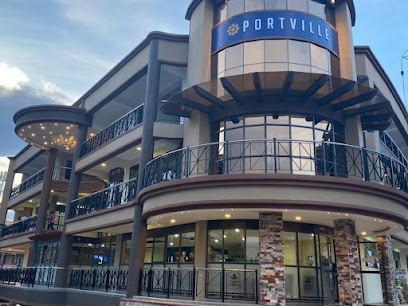
Grand west Arcade
Experience the delightful atmosphere and rich flavors of Ugandan coffee at Grand West Arcade, the perfect spot for tourists in Mbarara.
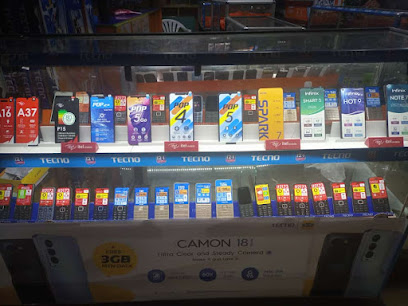
DayToDay Shopping Mall
Experience the vibrant local culture and delectable flavors at DayToDay Shopping Mall, your go-to grocery hub in Mbarara.
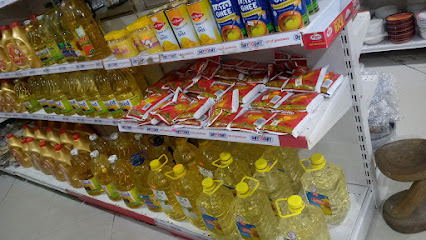
Big Fun Entertainment Centre
Explore the lush gardens and vibrant atmosphere of Big Fun Entertainment Centre in Mbarara, a perfect spot for relaxation and family fun.
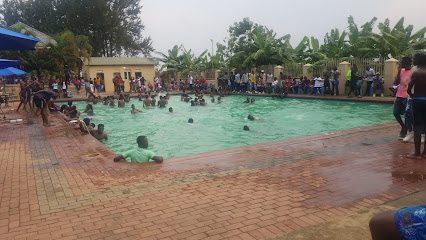
Mbarara City Business center
Explore Mbarara City Business Center, your one-stop shop for local crafts, essentials, and a taste of Ugandan culture.
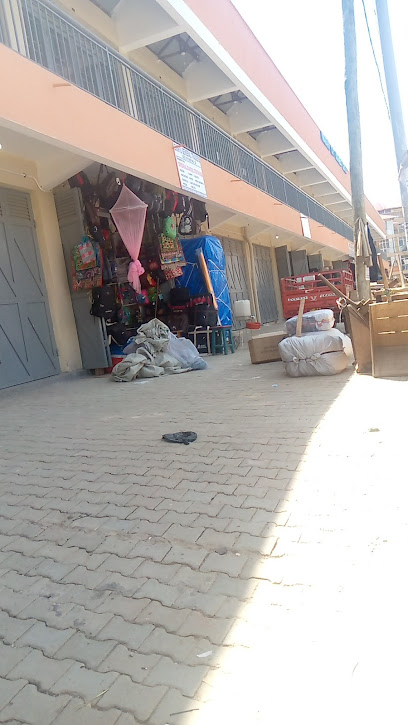
Freedom Bookshop Mbarara
Explore Freedom Bookshop in Mbarara, a treasure trove of literature that invites you to discover and celebrate local and global stories.
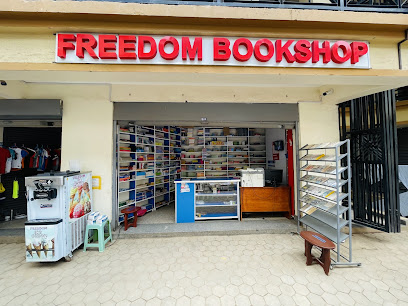
Adit Bookshop
Discover the charm of Adit Bookshop in Mbarara, a must-visit destination for book lovers seeking local literature and a cozy reading atmosphere.
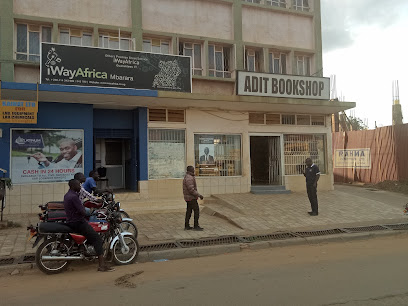
Sweet Things Bakery
Indulge in the sweet delights of Sweet Things Bakery, the best spot for pastries and local treats in Mbarara, Uganda.
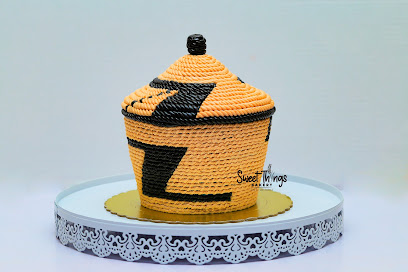
Essential bars & hidden hideouts
Desert Lounge Mbarara
Discover Desert Lounge Mbarara, a vibrant wine bar and grill where relaxation meets a lively atmosphere, perfect for enjoying local flavors and nightlife.
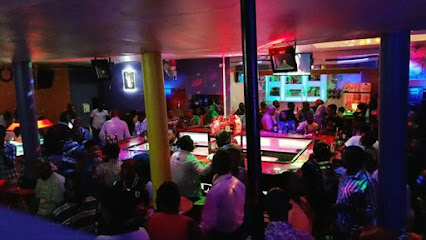
Shooters Bar And Grill
Discover the vibrant nightlife and delightful dining at Shooters Bar And Grill, Mbarara's premier destination for food and drinks.
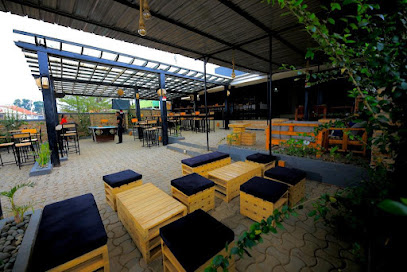
The Heat Events
Discover the vibrant nightlife at The Heat Events in Mbarara, a perfect blend of local drinks and lively atmosphere for an unforgettable experience.
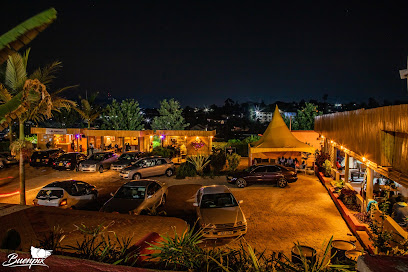
Nico'z Pub
Experience Mbarara's vibrant nightlife at Nico'z Pub, where friendly vibes and refreshing drinks await every visitor.
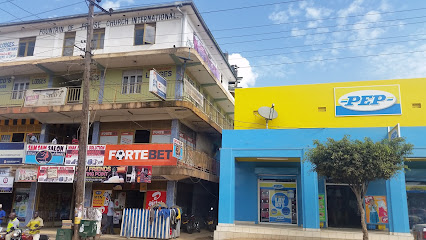
Vybz Lounge Mbarara city
Experience Mbarara's vibrant nightlife at Vybz Lounge, where delicious food, refreshing drinks, and great entertainment come together.
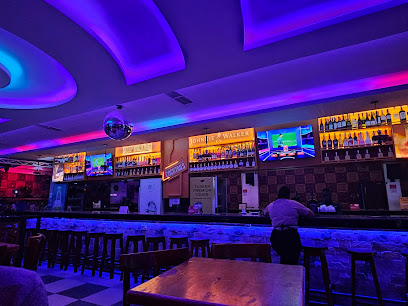
Da Cave Bar
Experience the vibrant nightlife of Mbarara at Da Cave Bar, where local culture meets great drinks in a unique atmosphere.
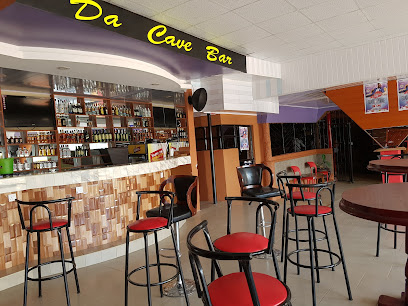
29 Mosque Road De City Lounge
Discover the lively De City Lounge in Mbarara, where cocktails, music, and local culture come together to create an unforgettable night out.
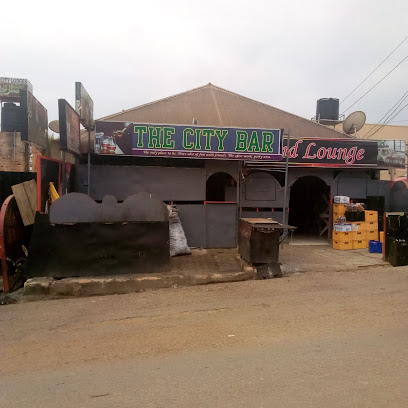
Luxor Bar And Grill
Discover authentic Ugandan flavors and grill delights at Luxor Bar And Grill in Mbarara, a must-visit for every traveler.
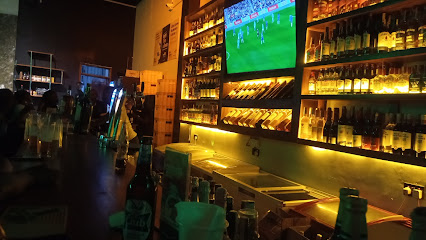
SOHO Terrace bar (former Peers)
Discover the vibrant nightlife at SOHO Terrace Bar in Mbarara, offering great drinks, stunning views, and a lively atmosphere for an unforgettable evening.
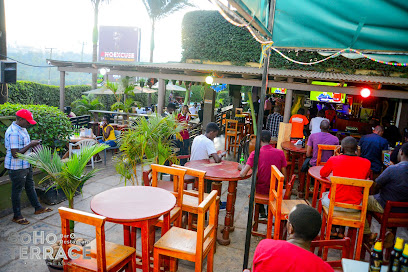
The Stamp Bar
Discover the lively atmosphere of The Stamp Bar in Mbarara, where refreshing drinks and vibrant entertainment await you.
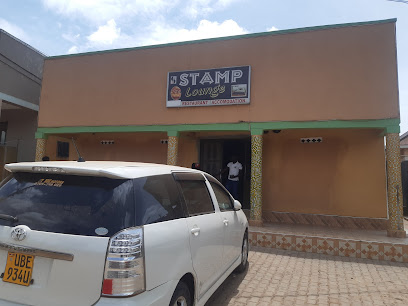
The Interface Hub
Experience the vibrant nightlife of Mbarara at The Interface Hub, where refreshing drinks and local culture come together in a lively bar setting.
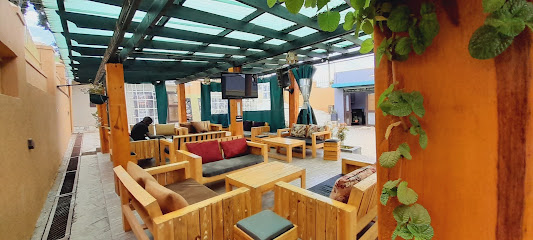
plot13_Mbarara Uganda
Discover the lively bar scene in Mbarara, where locals and tourists unite for unforgettable evenings filled with laughter, music, and great drinks.
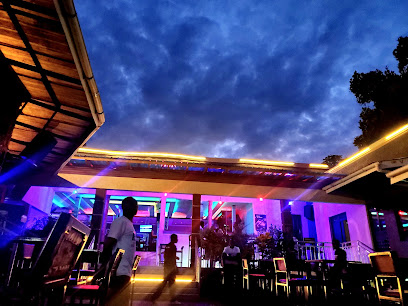
Rhino Tavern Bar & Restaurant
Experience the vibrant nightlife of Mbarara at Rhino Tavern Bar & Restaurant, offering a delightful mix of local cuisine and live entertainment.
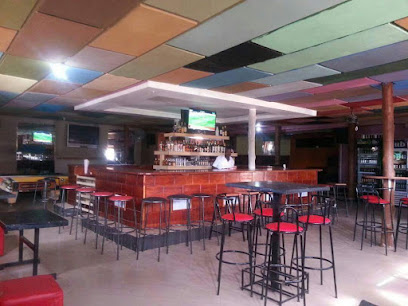
La Rooftop Lounge Mbarara
Discover relaxation and stunning city views at La Rooftop Lounge in Mbarara, a must-visit destination for all travelers.
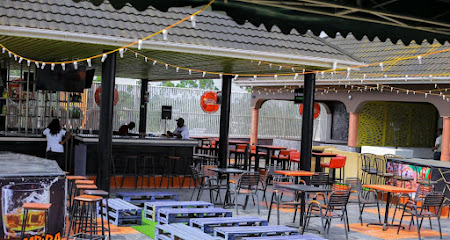
Local Phrases
-
- HelloAgandi
[ah-gahn-dee] - GoodbyeApwoyo
[ah-pwoh-yoh] - YesEego
[ee-goh] - NoNeda
[neh-dah] - Please/You're welcomeNyweza
[ny-weh-zah] - Thank youWebale
[weh-bah-leh] - Excuse me/SorryOsobola
[oh-soh-boh-lah] - How are you?Oraire otya?
[oh-rye-ree oh-tyah] - Fine. And you?Jangu. Naawe?
[jan-goo. nah-weh] - Do you speak English?Oyagala okulaba Engelesa?
[oh-yah-gah-lah oh-koo-lah-bah en-gel-eh-sah] - I don't understandSikilaba
[see-kee-lah-bah]
- HelloAgandi
-
- I'd like to see the menu, pleaseNkola kona emenu, kubanga
[en-koh-lah koh-nah eh-men-oo, koo-bahn-gah] - I don't eat meatSikulya enyama
[see-kool-yah en-yah-mah] - Cheers!Tubaale
[too-bah-leh] - I would like to pay, pleaseNkola okukola, kubanga
[en-koh-lah oh-koo-koh-lah, koo-bahn-gah]
- I'd like to see the menu, pleaseNkola kona emenu, kubanga
-
- Help!Tusiiwe!
[too-see-weh] - Go away!Genda wano!
[gen-dah wah-noh] - Call the Police!Tukole Poliisi!
[too-koh-leh poh-lee-see] - Call a doctor!Tukole daktari!
[too-koh-leh dahk-tah-ree] - I'm lostNzize
[en-zee-zeh] - I'm illNdi mbiro
[en-dee mm-bee-roh]
- Help!Tusiiwe!
-
- I'd like to buy...Nkola okukola...
[en-koh-lah oh-koo-koh-lah] - I'm just lookingNkola kona okwagala
[en-koh-lah koh-nah oh-kwah-gah-lah] - How much is it?Tugendane kikumi kya?
[too-gain-dah-neh kee-koo-mee kyah] - That's too expensiveEno yagala
[eh-no yah-gah-lah] - Can you lower the price?Ogenda okutwala omusolo?
[oh-gen-dah oh-koo-twah-lah oh-moo-soh-loh]
- I'd like to buy...Nkola okukola...
-
- What time is it?Saa ngapi?
[sah nah-gah-pee] - It's one o'clockSaa mokka
[sah moh-kah] - Half past (10)Mokka kunene
[moh-kah koo-neh-neh] - MorningEkigambo
[eh-kee-gahm-boh] - AfternoonEkiro
[eh-kee-roh] - EveningEkisibo
[eh-kee-see-boh] - YesterdayEinoonya
[eh-ee-nohn-yah] - TodayEnsi
[ehn-see] - TomorrowEraiso
[eh-rye-soh] - 1Mokka
[moh-kah] - 2Biri
[bee-ree] - 3Ssatu
[sah-too] - 4Nnya
[nn-yah] - 5Ttano
[tah-noh] - 6Mukaaga
[moo-kah-gah] - 7Munaana
[moo-nah-nah] - 8Mwenda
[mwehn-dah] - 9Muyanja
[moo-yahn-jah] - 10Kumi
[koo-mee]
- What time is it?Saa ngapi?
-
- Where's a/the...?Wano wali...?
[wah-no wah-lee] - What's the address?Adiresi ye gye?
[ah-dee-reh-see yeh gye] - Can you show me (on the map)?Ogenda okunyumiriza (mu mapu)?
[oh-gen-dah oh-koo-nyoo-meer-ee-zah moo mah-poo] - When's the next (bus)?Busi esaawa gye?
[boo-see eh-sah-wah gye] - A ticket (to ....)Eriiso (ekiwandi)...
[eh-rye-soh eh-kee-wahn-dee]
- Where's a/the...?Wano wali...?
History of Mbarara
-
Mbarara, located in southwestern Uganda, has a rich history that dates back to the pre-colonial era. The area was originally inhabited by the Banyankole people, a Bantu ethnic group known for their cattle-rearing and agricultural practices. The name 'Mbarara' is derived from the local word 'emburara,' which refers to a type of tall grass that was prevalent in the region.
-
Mbarara served as an important center for the Ankole Kingdom, which was established in the 15th century. The Ankole Kingdom was one of the many traditional monarchies in Uganda, with a hierarchical society led by the Omugabe (King). The kingdom was known for its long-horned cattle, which played a significant role in the culture and economy of the Banyankole people.
-
During the colonial period, Mbarara became a key administrative and commercial hub for the British. The British colonial administration established a presence in Mbarara in the late 19th century, integrating the area into the larger framework of the Uganda Protectorate. The construction of infrastructure such as roads and schools facilitated the town’s growth and increased its prominence in the region.
-
Uganda gained independence from British colonial rule in 1962, and Mbarara continued to develop as an important urban center. The town saw significant growth in terms of infrastructure, education, and healthcare. The establishment of Mbarara University of Science and Technology (MUST) in 1989 marked a major milestone, positioning the town as a center for higher education and research.
-
Mbarara is a melting pot of cultural heritage, with various traditions and festivals that celebrate the local way of life. The annual 'Ekyooto International Cultural Festival' is one such event that attracts visitors from across the country and beyond. This festival showcases traditional music, dance, crafts, and cuisine, offering a glimpse into the rich cultural tapestry of the Banyankole people.
-
In recent decades, Mbarara has experienced rapid economic growth and modernization. The town has become a bustling commercial center, with various industries ranging from agriculture to manufacturing and services. The strategic location of Mbarara along the highway connecting Kampala to the southwestern regions of Uganda has further bolstered its economic significance.
Mbarara Essentials
-
Mbarara is located in the Western Region of Uganda, approximately 270 kilometers southwest of Kampala, the capital city. The most common way to get to Mbarara is by road. You can take a bus from Kampala to Mbarara, which typically takes around 4 to 5 hours. Several bus companies operate on this route, including Link Bus Services and Global Coaches. Alternatively, you can hire a private taxi or rent a car. While there is no commercial airport in Mbarara, the nearest airport is Entebbe International Airport, from where you can arrange for a road transfer to Mbarara.
-
Within Mbarara, public transportation options include boda-bodas (motorcycle taxis), matatus (minibuses), and taxis. Boda-bodas are a quick and convenient way to get around, but always agree on the fare before starting your journey. Matatus are the most economical option for longer distances within the city, but they can be crowded. Taxis are available and offer a more comfortable ride. If you prefer more independence, car rentals are also available in Mbarara.
-
The official currency in Uganda is the Ugandan Shilling (UGX). While major hotels, restaurants, and supermarkets in Mbarara accept credit cards, it is advisable to carry cash for smaller establishments and local markets. ATMs are widely available in the city, but it's prudent to withdraw sufficient cash before traveling to remote areas. US dollars are also accepted in some places, but always check the exchange rate.
-
Mbarara is generally considered safe for tourists, but like any other city, it is important to take standard precautions. Avoid walking alone at night, especially in poorly lit areas. Neighborhoods such as Kijungu and Kakoba are known for higher crime rates, so it's best to stay vigilant in these areas. Keep your belongings secure and be cautious of pickpockets in crowded places like markets and bus stations.
-
In case of an emergency, dial 999 for police assistance or 911 for medical emergencies. Mbarara Regional Referral Hospital is the main medical facility in the city. It is advisable to have travel insurance that covers medical emergencies and to carry a basic first aid kit. Pharmacies are available for over-the-counter medications. For minor issues, local clinics and pharmacies can provide assistance.
-
Fashion: Do dress modestly, especially when visiting religious sites. Avoid wearing revealing clothing. Religion: Do respect local customs and traditions. When visiting churches or mosques, dress conservatively and remove your shoes. Public Transport: Do be respectful and give up your seat to elderly passengers. Don't eat or drink on public transport. Greetings: Do greet people with a handshake. A friendly 'Hello' or 'Oli otya?' (How are you?) goes a long way. Eating & Drinking: Do try local delicacies and accept food offerings graciously. Don't refuse hospitality, as it is considered impolite.
-
To experience Mbarara like a local, visit the lively Mbarara Central Market where you can buy fresh produce and traditional Ugandan goods. Engage with locals, who are often friendly and willing to share stories about their city. Don't miss visiting the Igongo Cultural Centre & Country Hotel for a taste of Ankole culture and history. For a unique experience, take a stroll around Lake Mburo National Park, just a short drive from Mbarara, to see a variety of wildlife including zebras and hippos.
Trending Landmark in Mbarara
-
Igongo Country Hotel and Cultural Centre
-
Hotel Triangle Mbarara
-
Agip Motel
-
Acacia Hotel Mbarara
-
Easy View Hotel
-
Kosiya Hotel & Services Apartment
-
Café Havana
-
Pinnacle Hotel Mbarara
-
Wagga Resort Mbarara
-
Rwizi Arch Hotel | Mbarara
-
Asamar Country Resort Ruti
-
Rolex Booth
-
Oxford Hotel
-
Las Vegas Hotel Mbarara
-
Cafe Havana3
Nearby Cities to Mbarara
-
Things To Do in Nyagatare
-
Things To Do in Masaka
-
Things To Do in Fort Portal
-
Things To Do in Ruhengeri
-
Things To Do in Bukoba
-
Things To Do in Kigali
-
Things To Do in Nyamata
-
Things To Do in Muhanga
-
Things To Do in Rubavu
-
Things To Do in Gisenyi
-
Things To Do in Entebbe
-
Things To Do in Kibuye
-
Things To Do in Karongi
-
Things To Do in Kirundo
-
Things To Do in Kampala








